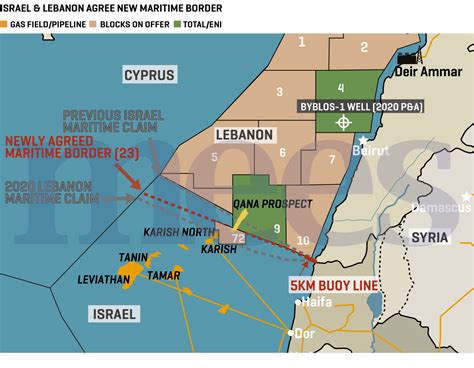Lebanon's Proximity to Israel: Economic Implications
Lebanon's geographical proximity to Israel, while presenting potential opportunities, is largely overshadowed by decades of political conflict and mistrust. This complex relationship significantly impacts Lebanon's economic landscape, hindering potential collaborations and creating unique challenges. This article explores the multifaceted economic implications of Lebanon's proximity to Israel, examining both the unrealized potential and the existing constraints.
What are the potential economic benefits of closer ties with Israel?
The potential economic benefits of improved relations between Lebanon and Israel are considerable, particularly given Israel's advanced technological sector and robust agricultural practices. A normalized relationship could unlock opportunities in:
-
Trade and investment: Increased trade in goods and services could stimulate economic growth in both countries. Israel possesses expertise in areas like technology, agriculture, and tourism, which could benefit Lebanon's struggling economy. Conversely, Lebanon could offer Israel access to its skilled workforce and strategic location.
-
Tourism: A peaceful resolution would allow for increased tourism between the two countries. This could create jobs and revenue in Lebanon's hospitality sector, boosting its economy. The potential for cross-border tourism is immense, given the diverse landscapes and cultural attractions on both sides.
-
Energy cooperation: Given Lebanon's chronic energy shortages and Israel's advancements in energy technology and natural gas production, cooperation in this area could be mutually beneficial. This could involve shared resources, technological transfers, and joint ventures.
-
Water management: Both countries face water scarcity issues. Cooperation in water management could lead to improved irrigation techniques, water conservation strategies, and more efficient water resource utilization.
What are the major obstacles preventing economic cooperation?
Despite the potential benefits, several significant obstacles impede economic cooperation between Lebanon and Israel:
-
Political instability in Lebanon: Lebanon's prolonged political instability, sectarian divisions, and frequent crises create an unpredictable environment that deters foreign investment, including any potential collaborations with Israel.
-
The Israeli-Palestinian conflict: The ongoing Israeli-Palestinian conflict casts a long shadow over any potential rapprochement between Lebanon and Israel. Public opinion in Lebanon remains largely against normalization with Israel due to its occupation of Palestinian territories.
-
Security concerns: The security situation along the border remains tense, hindering any meaningful economic engagement. Concerns about cross-border attacks and military escalations deter both businesses and individuals from engaging in any cooperative ventures.
-
Sanctions and boycotts: Lebanon's participation in any economic ties with Israel could invite international sanctions or boycotts, further complicating the already challenging economic situation.
Could Lebanon benefit economically from indirect cooperation with Israel?
Even without formal diplomatic relations, indirect cooperation between Lebanon and Israel is possible. This might involve third-party intermediaries facilitating trade or joint ventures in specific sectors. However, such indirect channels are limited and often lack the efficiency and effectiveness of direct engagement.
What are the long-term prospects for economic cooperation between Lebanon and Israel?
The long-term prospects for economic cooperation between Lebanon and Israel depend largely on several factors:
-
Resolution of the Israeli-Palestinian conflict: A peaceful resolution to the Israeli-Palestinian conflict would significantly improve the chances for normalization between Lebanon and Israel.
-
Political stability in Lebanon: Internal political stability and strong governance in Lebanon are crucial for attracting foreign investment and establishing a conducive environment for economic cooperation.
-
Public opinion: A shift in public opinion within Lebanon toward greater acceptance of relations with Israel is also necessary for any significant economic cooperation to materialize.
In conclusion, while the geographical proximity between Lebanon and Israel presents significant potential for mutual economic benefits, the political and security realities severely limit this potential. A lasting peace and improved political stability in Lebanon are prerequisite to unlocking the significant economic advantages of closer cooperation. Until then, the economic implications remain largely unrealized, representing a significant missed opportunity for both nations.

